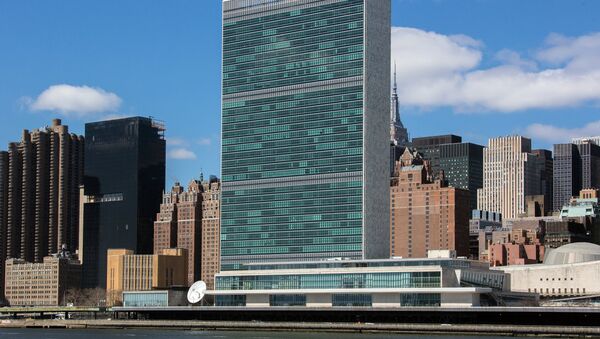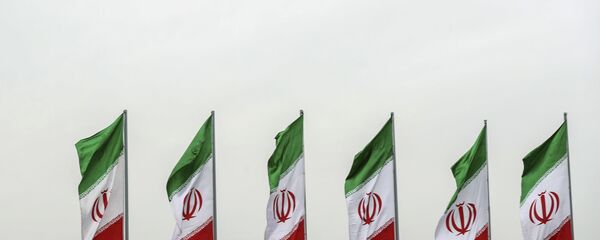New Delhi (Sputnik) — With much confusion and distress prevailing among Indian oil exporters over an impending decision by the US to sanction Iran and prevent it from shipping oil to Asian buyers, a number of analysts contend it is time global institutions, such as the UN, intervene and prevent discrimination against lesser developed nations.
Vijay Sardana, a food security and agri-business analyst, strongly called for this in an interview with Sputnik:
READ MORE: Moscow Calls on All Countries to Keep Buying Iranian Oil — Foreign Ministry
"I do believe that it is high time, globally recognised institutions like the United Nations and some developed countries should step in to stop this economic discrimination of developing nations like India and others," Sardana said.
Stating that a "lack of import availability will have an overall critical and debilitating impact on commodity pricing in particular and the economy in general," Sardana added: "These decisions can have a terrible effect on our productive resources in the short and long term. The global political discourse should now be about introducing a mechanism to safeguard developing and underdeveloped countries and ensure uniform or near uniform consumption patterns."
READ MORE: ‘Call Me’: Trump Says US Open for Talks With Iran
Ravi Singh, a commodities analyst, opined, "Iranian feed industries have always been looking at India to meet their requirement of soybean meal, but the recent export flow clearly reflects the impact of US sanctions. In April, Indian oil meal export volumes to Iran and other countries dropped drastically."
"Going forward, if the US sanctions over Iranian trades grows severe, exports volumes could fall further. Separately, a nominal impact will also be seen on trade flow of Basmati rice for which Iran is also dependent on India," he added.
Solvent Extractors Association of India (SEA) Executive Director B. V. Mehta told the Indian daily Financial Express that "Exporters are worried that if they should enter into contracts with Iran for soya-meal and oil-meal exports, India would no longer be exempted by the US. Therefore, there is uncertainty in the market".
The Iranian market had opened up for Indian soybean meal since Iranian feed industries look to India to meet demand for this particular commodity.





